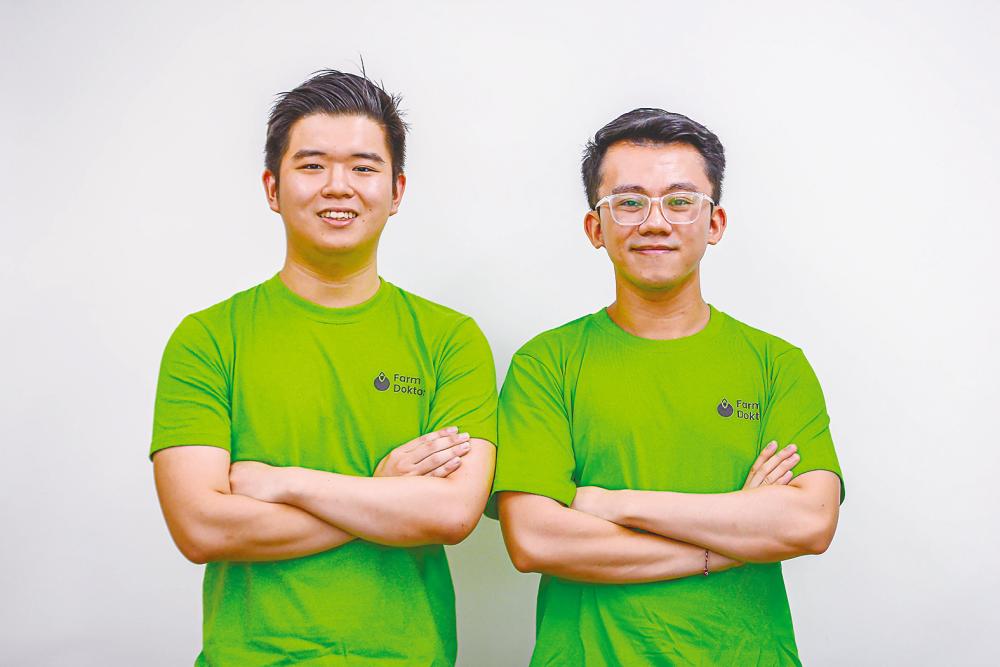PETALING JAYA: The rapidly ageing farmer population and lack of youth participation could affect food security for the nation in the future if left unaddressed, according to social enterprise startup Rice International PLT.
Disclosing this concern, founder and CEO Lincoln Lee Ming Tze cited a study conducted by Khazanah Nasional Bhd’s initiative, Dana Impak, which found that more than 67% of smallholder farmers in Malaysia are over the age of 40. When asked, more than 80% of the respondents agreed that they would encourage youths to venture into agriculture.
“If this issue is not resolved, we won’t be able to produce enough food because if there’s no knowledge transfer or interest from the younger generation to take over, then we wouldn’t be able to sustain our own production and even now, Malaysia is not self-sufficient and it will only get worse,“ Lee when sharing his insights together with strategy and partnerships manager Shaan Gom in an exclusive interview with SunBiz.
Established in 2018, the enterprise operates on business-to-business and business-to-consumer models for its two main brands, Paddi and Farm Doktor, respectively. The former markets artisanal rice and rice-based products such as rice milk and cultural rice beverages, which are well-known in Sabah and Sarawak.
Under Paddi, it has an ongoing pilot project to be completed close to year-end in Simunjan, Sarawak, which involves engagement with close to 40 farmers in the area, funded by Yayasan Hasanah.
Gom said only one or two of the farmers it engages with are between the ages of 35 and 39, while the rest are between 40 and 70 years old.
He noted that instead of following in the footsteps of the older generation, most of the farmers’ children prefer working desk jobs in metropolitan areas since they deem the agriculture business as unglamorous and unlucrative.
“In smaller communities, once the older population of farmers are no longer, the lack of guidance and interest could lead to the end of the generational farming tradition that was once vital for the livelihood of their families,” remarked Gom.
Through the pilot project, the enterprise is currently assisting 25 to 30 farmers, with almost 150 family members as indirect beneficiaries.
Using the project as a basis to study agricultural practices and build relations among the farming community in rural areas, the enterprise plans to expand the project to other parts of Sarawak, as well as Sabah.
Lee said that it is currently seeking potential angel and impact investors to invest in the enterprise’s seed stage. “We're looking to fundraise to scale up our projects in Borneo, to work with them to develop their rice into high-value rice products and build more sustainable equipment.”
It is working with a Sabahan company to develop biomass-powered grain dryers, tailored to the conditions of the area and the needs of the farmers.
Meanwhile, Farm Doktor is a digital agritech platform which aims to assist smallholder farmers by introducing a range of affordable products as well as offering farming advice, that could lead to better crop yield with lower farming production costs.
“The main goal for the enterprise is to help farmers boost their income. It’s just two different angles, Paddi is to help them downstream to expand their product range to sell to consumers, and then we could subsequently use profits obtained to reinvest and provide them with different kinds of technology to boost their crop yield.
“Farm Doktor targets to reduce their cost of production, so that farmers can manage their expenditure and not have to spend exorbitantly on devices and pesticides, which is a main concern for them,“ said Lee.
The enterprise generates revenue by charging commission fees to sellers for each successful sale using its platform and services.
On his outlook for 2024, Lee said he is optimistic about the agritech industry, driven by government support through funding and initiatives as well as consumer demand.
“Consumers are more aware now. They are concerned about what they are consuming, where it is sourced and are supportive of social causes,“ he said.
Lee noted that Khazanah Nasional has provided funding for several agritech companies, which he believed would result in more innovative solutions in the form of improved farming technologies on the local market, which will benefit the agricultural community as a whole.









